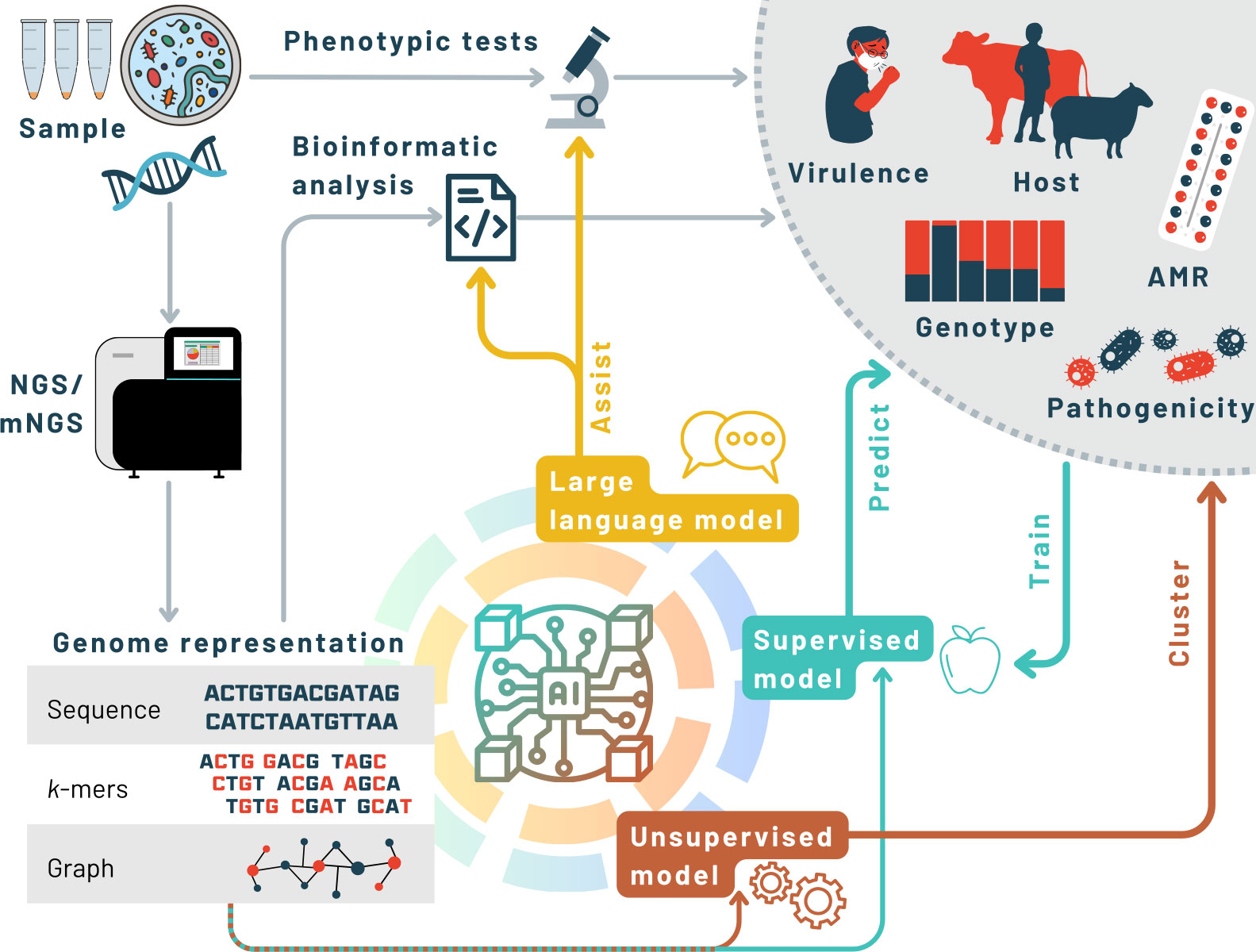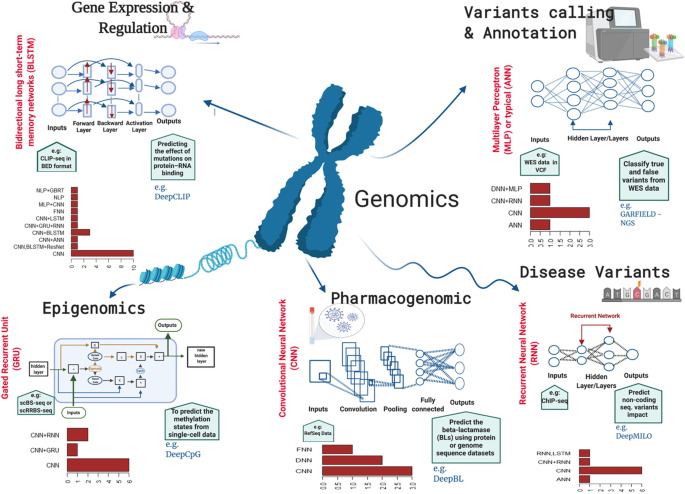AI and Deep Learning in Life Sciences Research: Unlocking New Frontiers in Genome Biology
At the Sivasakthi Science Foundation, we believe the future of life sciences lies at the intersection of artificial intelligence, deep learning, and biology. Our investment in AI and Deep Learning Innovation harnesses these technologies to accelerate discoveries in genome biology.
Transforming Genome Annotation with Deep Learning
Deep learning revolutionizes genome annotation by enabling automated, high-precision identification of genes, regulatory elements, and functional regions within complex genomes. This approach enhances our understanding of genetic functions and interactions, paving the way for breakthroughs in genomics, personalized medicine, and evolutionary studies.
Gene Prediction and Annotation
Deep learning algorithms can accurately predict the locations and functions of genes within a genome, automating the annotation process and identifying previously unknown genes or regulatory elements.

Variant Detection and Interpretation
Deep learning models can identify genetic variants, such as SNPs and structural variations, and predict their potential impact on gene function and association with diseases.
Gene Expression Analysis
By analyzing gene expression data, deep learning can uncover complex patterns and relationships between genes, helping to understand regulatory networks and identify key drivers of biological processes.

Evolutionary Genomics
Deep learning can model evolutionary processes, helping to predict how genomes might change over time, understand species divergence, and identify conserved genetic elements across organisms.
Personalized Medicine
Deep learning enables the integration of genomic data with other biological information to predict individual responses to treatments, leading to more effective and personalized medical interventions.
AI-Driven Insights into the Plasticity of Living Systems
Neural Plasticity and Cognitive Adaptation
Exploring how AI can model and predict changes in neural pathways, offering new insights into how brains adapt to learning, memory, and environmental stimuli.
Cellular and Genetic Plasticity
Utilizing AI to decode the mechanisms behind cellular adaptability, including gene expression changes, epigenetic modifications, and their implications for development and disease.
Adaptive Responses in Ecosystems
Employing AI to study the plasticity of ecosystems in response to environmental changes, focusing on how species interactions and ecological dynamics evolve over time.
Plasticity in Developmental Biology
Investigating how AI can help understand the flexible nature of developmental processes and shed light on how organisms modify their growth patterns in response to internal and external factors.
Plasticity and Regeneration in Tissue Engineering
Using AI to enhance our understanding of tissue plasticity, particularly in regenerative medicine, where the ability to predict and control tissue adaptation is crucial for therapeutic advancements.
